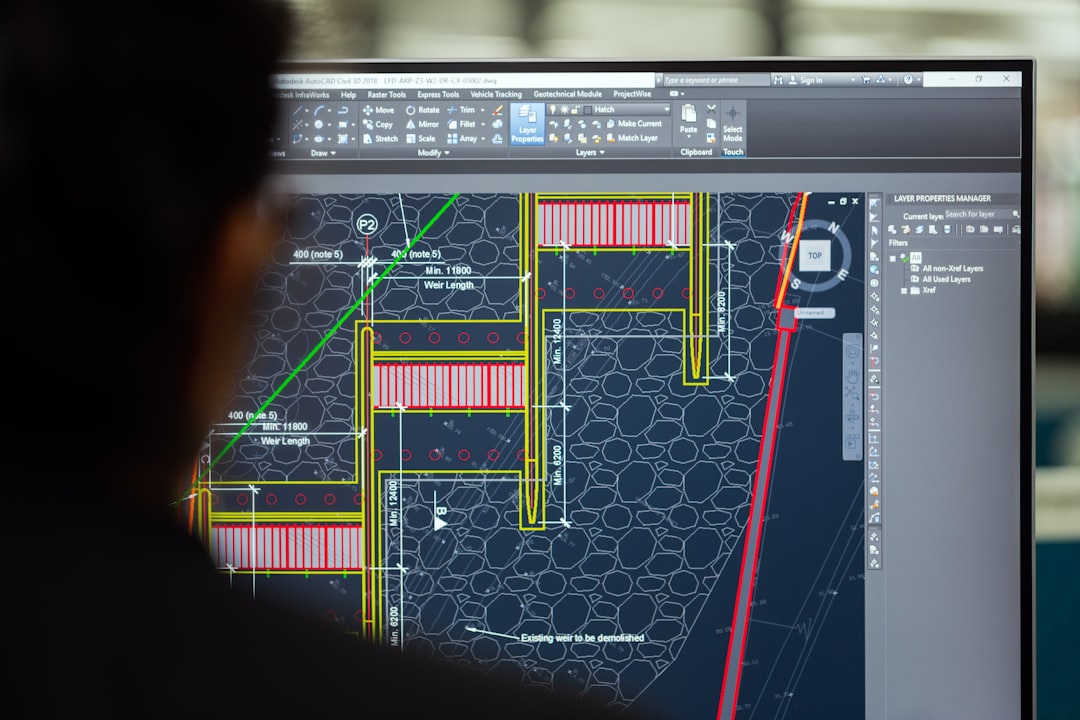Unlock encrypted content
Please enter your SSCE key to initiate on-the-fly decryption.
Decryption key: (Click cancel if you don't have the key)
Copied link to clipboard.
This feature is unavailable for free accounts. Upgrade now and enjoy all Premium benefits.
Go Premium!
This feature is unavailable for free accounts. Upgrade now and enjoy all Premium benefits.
Go Premium!
Please open this page in browser ( Google Chrome or Safari ) to use this feature.
Open In Browser
The Future of File Storage: Exploring Technology and User Experience in 2030.
Random related video for this blog.
Copied share link to clipboard.
As we approach 2030, the landscape of file storage is evolving rapidly. Understanding the trends and technologies shaping this future is essential for consumers and businesses alike. The integration of innovative technologies, user-friendly customer support, and compliance-ready storage solutions will redefine how we manage and access our data. This article explores these dynamics, focusing on file permissions, family share storage, storage pool technology, spatial computing, cloud infrastructure, and file search capabilities.
Advancements in File Permissions
File permissions are the backbone of data security in any file storage system. As we move towards 2030, the complexity of file permissions will increase, necessitating more granular controls to protect sensitive information. Current systems often provide basic permissions such as read, write, and execute. However, future technologies will likely introduce more sophisticated permission settings that enable users to define access levels based on specific roles or contexts. For example, in a corporate environment, a project manager may need to grant temporary access to documents for external stakeholders while ensuring that sensitive data remains protected. Advanced file permission systems could allow for time-limited access, where permissions automatically expire after a set period. This would not only enhance security but also streamline collaboration, as users wouldn't have to manage access manually. Moreover, integration with artificial intelligence (AI) could play a pivotal role in managing file permissions. AI could analyze user behavior and automatically adjust permissions based on patterns, ensuring that only authorized users have access to critical information. This proactive approach to security would greatly reduce the risk of data breaches and enhance compliance with regulations such as GDPR and HIPAA.Exploring Family Share Storage Solutions
Family share storage solutions are becoming increasingly popular as families seek ways to manage their digital lives efficiently. In 2030, we can expect these solutions to become more user-friendly andfeature-rich, catering to the diverse needs of family members. FileLu, for instance, offers plans that allow families to share storage space seamlessly, making it easier to organize photos, videos, and important documents. Consider a scenario where a family is planning a vacation. With a family share storage solution, one member can upload all the travel itineraries, while others can contribute vacation photos in real-time. This collaborative approach not only fosters communication but also ensures that all important documents are stored in one secure location. Additionally, as spatial computing technology advances, families may be able to interact with their stored files in immersive environments. Imagine using virtual or augmented reality to navigate through family memories or important documents stored in the cloud. This level of interactivity could transform how families engage with their digital content, making it more meaningful and accessible.
Storage Pool Technology: The Next Frontier
Storage pool technology is set to revolutionize how we think about file storage by 2030. This technology enables users to combine multiple storage devices into a single, cohesive unit, optimizing storage efficiency and performance. As data generation continues to grow exponentially, traditional storage methods may struggle to keep up. Storage pools offer a scalable solution to this challenge. For instance, businesses could implement storage pools that dynamically allocate resources based on demand. During peak times, additional storage could be allocated automatically, ensuring that users experience minimal downtime. This flexibility would be particularly beneficial for industries that experience fluctuating data needs, such as e-commerce or media production. Moreover, storage pools can enhance data redundancy and recovery options. By distributing data across multiple devices, the risk of data loss due to hardware failure is significantly reduced. Future advancements may even allow for automated backups and recovery processes, further streamlining data management for users.The Role of Spatial Computing in File Management
Spatial computing is an emerging field that blends the physical and digital worlds, and its impact on file storage solutions will be profound by 2030. This technology encompasses augmented reality (AR), virtual reality (VR), and mixed reality (MR), enabling users to interact with data in intuitive ways. For instance, imagine using AR glasses to visualize your file storage system as a 3D space, where you can physically "walk" through your folders and documents. Such an interface could revolutionize file search capabilities, allowing users to locate files by simply pointing to them in a virtual environment. This immersive experience would not only make file management more engaging but also significantly reduce the time spent searching for documents. Companies like FileLu could harness spatial computing to enhance their user interfaces, making file storage more accessible to users of all ages and technical proficiency levels. Furthermore, spatial computing could facilitate collaborative work environments where teams can meet in virtual spaces to share and manipulate files in real-time. This shift toward a more interactive and engaging file management experience could lead to increased productivity and creativity within teams.The Importance of Cloud Infrastructure
In 2030, cloud infrastructure will be more vital than ever in supporting file storage solutions. As businesses and individuals continue to migrate to the cloud, the demand for robust, secure, and scalable cloud services will increase. FileLu's commitment to providing a secure file storage backup platform is a prime example of how businesses can leverage cloud infrastructure to meet their users' evolving needs. With advancements in cloud technology, users can expect faster data access and improved data retrieval speeds. This is particularly important for businesses that rely on real-time data analytics and decision-making. For instance, a marketing team may need immediate access to customer data to adjust their strategies on the fly. A well-optimized cloud infrastructure can facilitate this level of responsiveness. Additionally, compliance-ready storage solutions will become a critical aspect of cloud infrastructure. As regulations around data privacy and security become more stringent, companies will need to ensure that their cloud storage solutions meet these requirements. FileLu's focus on compliance-ready storage solutions positions it well to serve businesses that prioritize data integrity and security.Enhancing File Search Capabilities
As the volume of digital files continues to grow, effective file search capabilities will be essential for users. By 2030, we can expect significant advancements in search technologies that leverage machine learning and natural language processing to improve the way users find and retrieve their files. Current search engines often rely on keywords, but future systems will understand context and intent, making searches more intuitive. Imagine a scenario where a user types a question like "Show me last year's vacation photos" into a search bar. Advanced search algorithms could analyze metadata, file contents, and user behavior to provide relevant results quickly. This level of sophistication would greatly enhance the user experience, making it easier for individuals and businesses to manage their files. Moreover, the integration of visual search capabilities could further streamline this process. Users may be able to upload an image or use their camera to find related files stored in the cloud. This feature would be particularly useful for creative professionals who often deal with large volumes of visual content.User-Friendly Customer Support in File Storage
As file storage solutions become more complex, the need for user-friendly customer support will be paramount. In 2030, companies like FileLu will need to invest in comprehensive support systems that cater to a diverse user base. This includes providing resources such as tutorials, FAQs, and live chat options to assist users with their file storage needs. For example, a user unfamiliar with file permissions may encounter difficulties when trying to share a document securely. A well-designed support system could offer step-by-step guides and video tutorials to help users navigate these challenges. Additionally, AI-driven chatbots could provide instant support for common inquiries, enhancing the overall customer experience. Furthermore, proactive customer support strategies can help identify and address potential issues before they escalate. By monitoring user interactions and feedback, companies can continuously improve their services and anticipate user needs. This commitment to customer support will be crucial in building trust and loyalty among users.Compliance-Ready Storage Solutions
As data privacy regulations become stricter, compliance-ready storage solutions will be a focal point for businesses in 2030. Companies will need to ensure that their file storage systems adhere to regulations such as GDPR and CCPA to avoid costly penalties. FileLu's emphasis on compliance-ready storage solutions is a testament to the importance of data integrity in today's digital landscape. Businesses will need to implement robust data governance policies that outline how data is collected, stored, and shared. This includes establishing clear protocols for data access and ensuring that only authorized personnel can view sensitive information. Compliance-ready storage solutions will provide the necessary tools to facilitate these processes, ensuring that businesses can operate within legal frameworks. Moreover, as remote work becomes more prevalent, ensuring compliance in a distributed workforce will be a significant challenge. Companies will need to invest in training and resources to educate employees about data privacy best practices. By fostering a culture of compliance, businesses can mitigate risks and protect their reputation in the marketplace.The Future of File Storage: A Conclusion
Looking ahead to 2030, the future of file storage is bright, characterized by advancements in technology, enhanced user experiences, and a commitment to security and compliance. The integration of file permissions, family share storage, storage pool technology, spatial computing, cloud infrastructure, and improved file search capabilities will redefine how we manage and interact with our digital content. As users increasingly seek solutions that prioritize privacy and data integrity, companies like FileLu are well-positioned to meet these demands. By focusing on user-friendly customer support and compliance-ready storage solutions, businesses can build trust and loyalty among their users, driving growth and innovation in the industry. The evolution of file storage is not just about technology; it’s about empowering users to manage their data effectively and securely. As we embrace these changes, we must remain adaptable and open to new possibilities, ensuring that we harness the full potential of file storage technology in the years to come.Frequently Asked Questions (FAQs)
Question: What advancements can we expect in file permissions by 2030? Answer:
By 2030, file permissions will likely become more granular and context-aware, allowing for temporary access and AI-driven management.
Question: How will family share storage solutions improve in the future? Answer:
Future family share solutions will be more user-friendly, with features like real-time collaboration and immersive spatial computing experiences.
Question: What is storage pool technology, and how will it benefit users? Answer:
Storage pool technology will allow users to combine multiple storage devices for improved efficiency, flexibility, and data redundancy.
Question: How will spatial computing impact file management? Answer:
Spatial computing will enable immersive file interactions, enhancing file search and collaboration through AR and VR technologies.
Question: Why is cloud infrastructure important for file storage solutions? Answer:
Cloud infrastructure will provide scalability, security, and compliance, ensuring efficient data management for users and businesses.
By Amelia Isabella
Email: [email protected]
Related
Easy-to-Use Downloading Tools and Robust File Version Management: A Comprehensive...
June 16, 2023
Read More
Efficient File Sharing and Data Deduplication: Transforming the Future of...
June 16, 2023
Read More
Unlocking the Power of Data: Exploring the Latest Technological Advancements
June 16, 2023
Read More
Futuristic Transportation and Gadgets: Revolutionizing the Way We Move and...
June 16, 2023
Read More
The Future of Technology: Brain-Machine Interfaces, Autonomous Vehicles, and More
June 16, 2023
Read More
Cutting-edge Innovations in File Recovery, Radar Systems, and Data Analytics
June 16, 2023
Read More
Scalable Storage and User-Friendly Interface: The Future of File Accessibility...
June 16, 2023
Read More
Popular
Latest
The Future of Digital Transformation: Exploring Smart Homes, Efficient File...
November 30, 2025
Read More
Exploring the Benefits of Cloud Storage and Innovative Technologies in...
November 26, 2025
Read More
The Future of Technology: Exploring Biohacking, Space Tourism, and Digital...
November 23, 2025
Read More
The Future of File Sharing: Streamlined Workflows for Photographers and...
November 19, 2025
Read More
Exploring the Intersection of Technology: From Cybersecurity to Augmented Reality...
November 16, 2025
Read More
The Future of File Management: Embracing Edge Computing and Efficient...
November 12, 2025
Read More
The Future of File Sharing: Exploring User-Friendly Solutions and Data...
November 5, 2025
Read More
The Future of Cloud Storage: How FileLu Empowers Creative Professionals...
November 2, 2025
Read More
The Future of Autonomous Technologies: Innovations in Robotics, File Sharing,...
October 29, 2025
Read More
Emerging Technologies Revolutionizing File Management: From Li-Fi to Robust Collaboration...
October 26, 2025
Read More
Emerging Technologies: Exploring the Impact of File Access Auditing, Genetic...
October 19, 2025
Read More
The Future of Data Storage: Exploring Advanced Encryption, Mobile Integration,...
October 5, 2025
Read More
Exploring the Future of Data Management: Security, Efficiency, and Cognitive...
September 28, 2025
Read More
Revolutionizing Data Management: Innovations in Storage, Security, and Sustainable Technology.
September 24, 2025
Read More



















